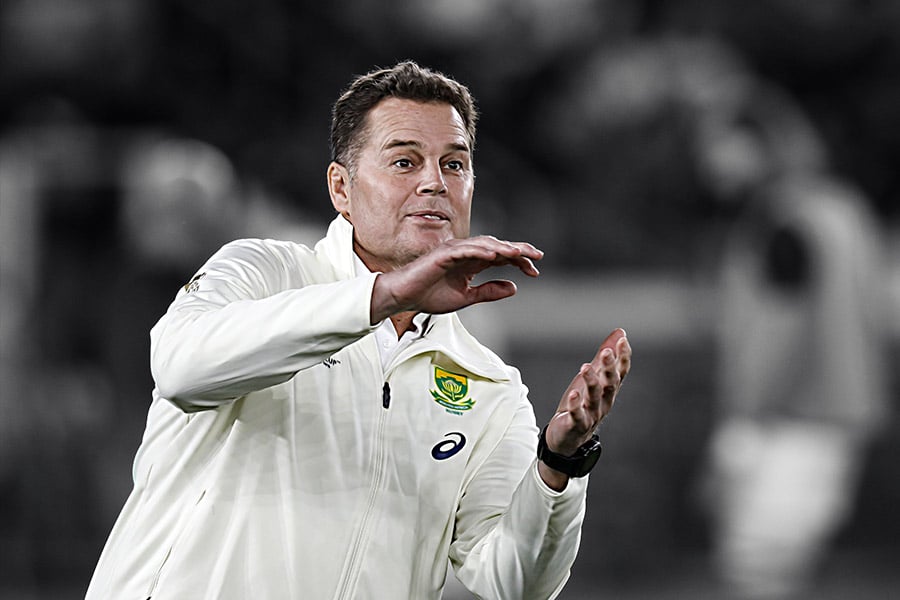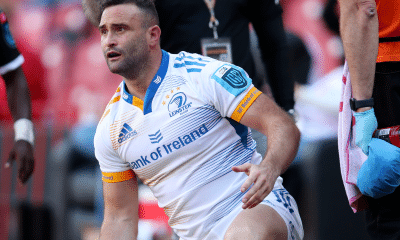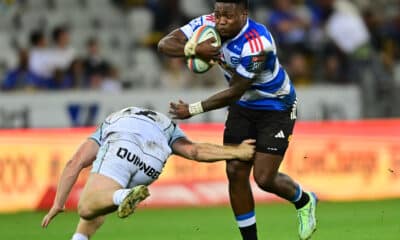
23 December 2019, by: Quintin van Jaarsveld
Springbok Decade Series: 2018
The past decade saw the Springboks rise from record lows to ultimate triumph, writes Quintin van Jaarsveld.
The Springboks’ journey over the past 10 years, rising from the ashes to World Cup glory in 2019, is akin to climbing Everest. The very reputation of Springbok rugby hung in the balance after the men in Green and Gold plummeted to unprecedented lows. Record losses equalled red alert and avalanche after avalanche threatened to bury the Boks for good.
With true South African grit, however, the men in Green and Gold persevered. Problems persisted, but every time they got knocked down, they picked themselves up and dusted themselves off. Instead of waning, they grew stronger and eventually turned the corner. Emerging from the shadows, there was hope once more, the summit in sight, albeit from afar.
Hope inspired heroics, and with Rassie Erasmus and Siya Kolisi leading the way, the Springboks scaled the peak in remarkable fashion. Overcoming the odds, the class of 2019 clinched the coveted Webb Ellis Cup, planting their flag atop rugby’s Everest and breathing the rarefied air reserved for world champions.
On the doorstep of a new dawn, we take a trip down memory lane in a 10-part series chronicling the decade that was for Springbok rugby.
GET THE ADVANTAGE WITH OUR RUGBY BETTING OFFERS
Extensive pre-match and live in-play markets on every game.
Our legendary BET Boosts to give you extra value on every game!
Exclusive to BET.co.za customers.
After the disastrous Allister Coetzee era, which saw South Africa lose 12 of their 25 Tests, crash to record losses to the All Blacks (57-0) and Ireland (38-3) and suffer the humiliation of the first-ever defeat to Italy (20-18) over two seasons, the once-mighty Springbok was on its deathbed.
It had been a foregone conclusion, but in February Coetzee’s sacking was finally confirmed. The next month, it was announced that Rassie Erasmus, who’d taken up the new role of director of rugby towards the end of 2018 after a successful tenure at Munster, would do double duty as Coetzee’s replacement.
He cut his coaching teeth at his former union the Free State Cheetahs, who in 2005 he steered to their first Currie Cup title since 1976. He served as a technical advisor in the 2007 World Cup-winning Springbok side, a role he renewed for the next World Cup, coached at the Stormers and served as South Africa’s General Manager: High-Performance teams before making the move to Munster in 2016. During his time in Ireland, Erasmus was named Guinness Pro12 Coach of the Year after leading Munster to the top the log for the first time in six years as well as to the semi-finals of the European Champions Cup.
He inherited a Springbok squad in shambles, stripped of confidence and, more importantly, identity. As much as he was a tactical and analytical genius, Erasmus was also a visionary. When he stepped up and accepted the unprecedented challenge of resurrecting South African rugby, after frankly few others volunteered, he did so with proper planning to realise short and long term goals he’d set.
As a former Springbok flank and captain, who won 36 caps and was part of the squad that won the Tri-Nations in 1998 and reached the 1999 World Cup semi-finals, Erasmus had walked the walked and knew better than most what style best suited the Boks. Under Coetzee, the men in Green and Gold were devoid of direction and structure. They largely lacked conviction, seemed confused and unravelled at the seams as a result.
Erasmus knew that for the Boks to have a chance of returning to their former glory, they would have to employ a back to the future approach. They would have to revert to, rediscover and refine the traditional strengths of South African rugby – employing a brutally physical, pack-powered territorial game plan – and forget trying to play a more expansive, All Black-esque style Coetzee’s charges attempted at times.
It didn’t take a rugby genius to know the Boks would have to drastically improve their defence, which for the longest time had been an impregnable wall but had eroded into a chicken wire-looking fence over the past two seasons. To right this wrong, Erasmus roped in Jacques Nienaber, one of the world’s premier defensive gurus and a long-time ally, who’d served as his right-hand man at the Cheetahs, Stormers and Munster.
Erasmus also wasn’t afraid to make bold decisions, such as naming no less than 13 uncapped players – Travis Ismaiel, Makazole Mapimpi, Andre Esterhuizen, Ivan van Zyl, Kwagga Smith, Jason Jenkins, Ox Nche (all in the run-on side), Akker van der Merwe, Thomas du Toit, Marvin Orie, Sikhumbuzo Notshe, Embrose Papier and Robert du Preez (replacements) – in his first matchday 23 for the one-off Test against Wales in Washington DC. The money-driven American exhibition ended up being a flop as the Boks, captained for the first time by Pieter-Steph du Toit in the No.5 jersey, went down 22-20.
With regular captain Warren Whiteley ruled out of the Incoming Tour against England through injury, Erasmus’ second bold move was naming Siya Kolisi as captain, the flank taking his place in history as the Boks’ first black Test skipper in the series-opener at Ellis Park. England raced into a 21-point lead, but Kolisi and company staged an epic comeback to clinch a thrilling 42-39 win. It was a character-building triumph that laid the foundation for future success.
They clinched the series the following week with a 23-12 win in Bloemfontein before dropping the dead rubber 25-10 in Cape Town. As the cliché goes, Rome wasn’t built in a day, and at season’s end, Erasmus’ report card read an even 50% with seven wins in 14 Tests. Lost in that stat was THE key moment of the Bok revival.
Coming off back-to-back Rugby Championship defeats to Argentina and Australia, the Boks turned the rugby world on its axis with a stunning 34-32 win over the All Blacks in Wellington. After a collective effort for the ages, tears flowed freely from a Bok team reborn, most powerfully personified by an overwhelmed and exhausted Du Toit, who had played his heart out. The watershed win was the first by a Bok team in New Zealand in a decade and marked the turning point that would ultimately lead to World Cup glory.
South Africa 20-22 Wales
South Africa 42-39 England
South Africa 23-12 England
South Africa 10-25 England
South Africa 34-21 Argentina
South Africa 19-32 Argentina
South Africa 18-23 Australia
South Africa 36-34 New Zealand
South Africa 23-12 Australia
South Africa 30-32 New Zealand
South Africa 11-12 England
South Africa 29-26 France
South Africa 26-20 Scotland
South Africa 11-20 Wales
JOIN BET.CO.ZA NOW AND GET 100% DEPOSIT MATCH UP TO R1000
Open your BET.co.za account here
Deposit using your preferred method
Your bonus gets added immediately!
MORE RUGBY






















